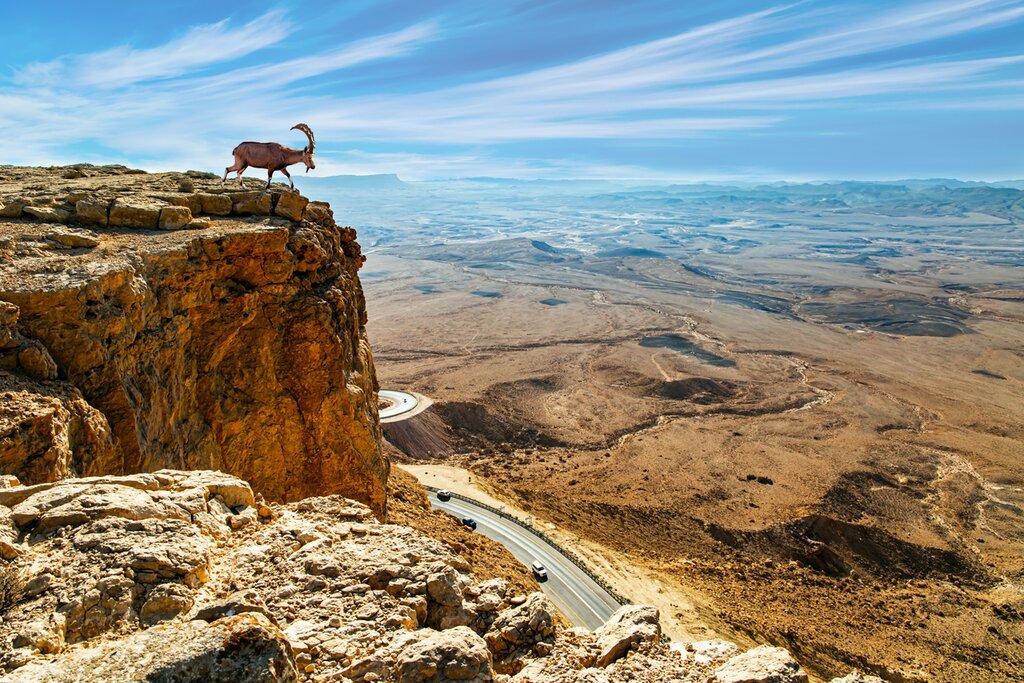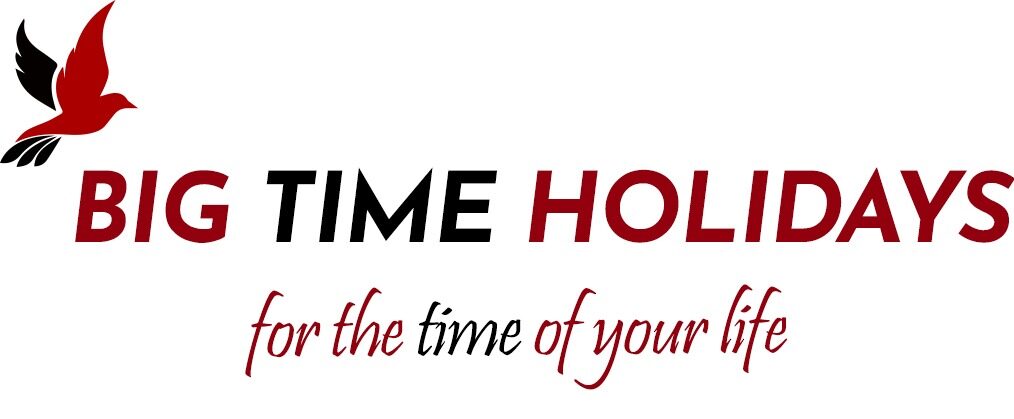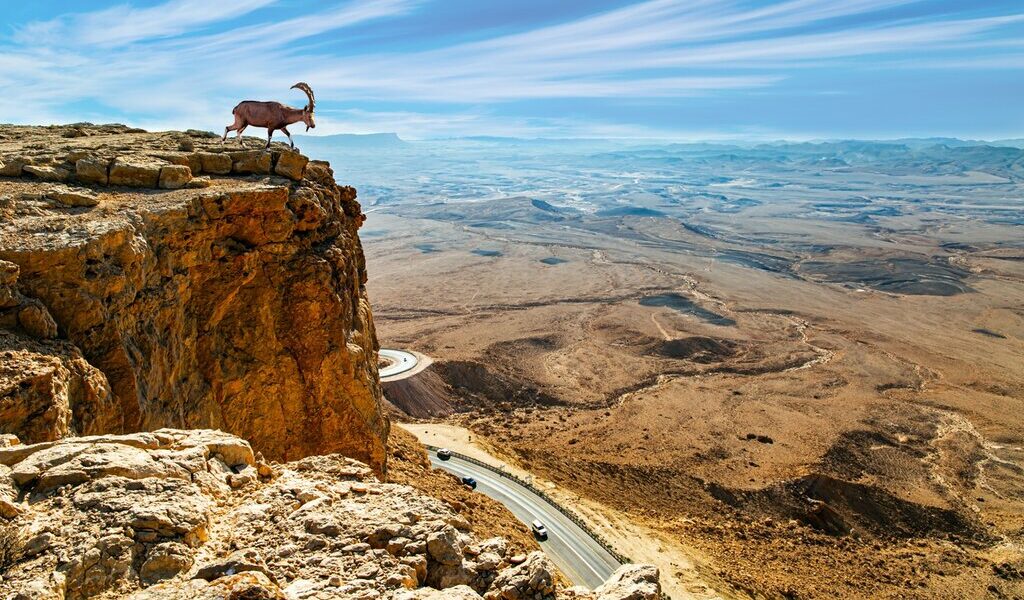
It’s best to visit Israel in the spring or fall when the weather is pleasantly warm, there is less chance of precipitation, tourism is calmer, and you have more options for outdoor activities. Consider planning around the country’s many religious holidays as businesses close and prices for hotels and flights are higher.
## A Comprehensive Guide to Seasonal Travel Planning in Israel
**Israel** is a captivating and multifaceted country, a melting pot of cultures and faiths, where Judaism, Islam, and Christianity intertwine to create a vibrant tapestry of traditions and beliefs. This rich diversity manifests in a calendar brimming with festivals and celebrations, offering visitors a unique opportunity to immerse themselves in the local culture. However, it’s essential to be aware that this same diversity can also influence the opening hours of businesses and the availability of certain foods, particularly during the spring and fall months, which are often punctuated by religious holidays. Careful planning is key to maximizing your experience and ensuring a smooth and enjoyable journey.
Spring is often touted as the quintessential time to explore Israel, blessed with delightfully pleasant weather, typically hovering around a comfortable 75°F (24°C). This idyllic climate beckons nature enthusiasts to revel in the country’s verdant landscapes, adorned with blossoming flowers and crisscrossed by a network of inviting hiking trails and protected nature reserves. The air is fresh, the scenery is breathtaking, and the opportunities for outdoor adventures are seemingly endless. Fall presents another compelling option, offering warm and inviting weather, a plethora of festivals to partake in, and abundant opportunities for sightseeing. However, it’s worth noting that the allure of religious holidays draws a significantly larger influx of visitors to the country, leading to potentially crowded conditions. Conversely, the months of June through August usher in a period of intense heat, with average temperatures soaring to 88°F (31°C) during the day. While the sweltering heat may deter some, it also translates to fewer crowds, allowing for a more intimate and less congested exploration of the country’s treasures. Winter offers its own unique appeal, especially for those with a penchant for winter sports. If you’re willing to navigate the potentially unpredictable weather patterns, you can indulge in skiing adventures and immerse yourself in the festive atmosphere of Christmas or Hanukkah, complete with enchanting tree lightings and captivating concerts.
Beyond the general seasonal considerations, it’s also crucial to factor in the distinct weather patterns that prevail in various regions of Israel. Coastal cities like **Tel Aviv**, nestled along the shores of the **Mediterranean Sea**, and **Tiberias**, gracing the banks of the **Sea of Galilee**, tend to experience hot and humid conditions due to their proximity to the water. In contrast, **Jerusalem**, centrally located, boasts a drier and cooler climate compared to other parts of the country, particularly during the evenings. As you venture further south, destinations such as **Masada** and **Eilat** will greet you with considerably hotter, yet arid, conditions. Understanding these regional variations will allow you to pack appropriately and plan your itinerary to best suit your preferences and tolerance for different weather conditions.
| Seasons | Pros | Cons | Best for | Where to Visit |
| ——————– | ————————————————————————————————— | —————————————————————————————————————– | ————————————————————————— | ——————————————————————————————————————————————— |
| **Spring (Mar-May)** | Pleasant weather, ideal for outdoor activities. | Crowded sites, higher prices for hotels and flights, potential holiday closures. | Sightseeing, nature exploration, hiking, biking, rock climbing. | Jerusalem, Masada, Hula Nature Reserve, various national parks, the picturesque Banias Spring Trail. |
| **Summer (Jun-Aug)** | Fewer crowds compared to spring and fall, lower costs for flights and hotels, minimal precipitation. | Hot temperatures, peak season for families on summer break. | Beaches, surfing, diving, snorkeling. | Tel Aviv and other coastal cities, the beautiful Yarkon Park, the unique Dead Sea, Eilat on the Red Sea. |
| **Fall (Sep-Nov)** | Pleasant weather, opportunities to partake in festivals and cultural experiences. | Crowded sites, higher prices for hotels and flights, potential holiday closures. | Sightseeing, immersing oneself in local festivals. | Jerusalem, Tel-Aviv. |
| **Winter (Dec-Feb)** | Fewer crowds, lower costs for flights and hotels. | Higher chances of rain, chilly weather, fewer daylight hours. | Museums, winter sports, partaking in Christmas festivities. | Mount Hermon for skiing adventures, Bethlehem, Jerusalem, Haifa, and Nazareth for enchanting Christmas activities. |
## Experiencing the Delights of Spring in Israel (March to May)
Spring, alongside fall, emerges as one of the most opportune times to embark on an exploration of Israel. While it coincides with the holiday season, potentially leading to closures due to school breaks and Passover, and may entail higher travel costs and more crowded attractions, the rewards are plentiful. The weather is delightfully pleasant, creating ideal conditions for both sightseeing and outdoor pursuits.
Travelers can immerse themselves in the natural splendor of the **Hula Nature Reserve** in northern Israel, a protected wetland haven where migratory birds from Europe, Africa, and Asia converge. It’s a mesmerizing spectacle for birdwatchers and nature enthusiasts alike. Hiking enthusiasts will find themselves spoiled for choice, with a diverse array of trails to explore, including the waterfall-laden **Nahal Meitzar**, the thrilling rock climbing opportunities at **Manara Cliff**, and the ambitious **Shvil Israel National Trail**, which traverses the entire country from north to south.
Further enriching the spring experience are opportunities to explore the cascading waterfalls and lush oasis of the **Ein Gedi Nature Reserve**, or to marvel at the **Rosh HaNikra**, a captivating geological formation sculpted by the **Mediterranean Sea**. For those with a passion for stargazing, the expansive **Negev Desert** unveils its clear skies, offering unparalleled views from atop the nearby **Makhtesh Ramon Crater**, a geological wonder in its own right.
### Spring Events to Enrich Your Israeli Experience
* **Purim**, **nationwide**: This joyous festival, primarily celebrated in **Jerusalem** and **Tel-Aviv** in March, transforms cities into vibrant carnivals. Purim commemorates the deliverance of the Jewish people from a Persian plot to annihilate them, as recounted in the Book of Esther.
* **Jacob’s Ladder Festival**, **Nof Ginosar** (Sea of Galilee): In March, music aficionados can revel in a diverse array of genres, including bluegrass, folk, country, blues, Irish, and world music, at this vibrant musical and social event.
* **Yom HaAtzmaut**, **nationwide**: Held in April, this national holiday celebrates Israel’s independence with a series of exuberant concerts, dazzling fireworks displays, and lively parties.
* **Passover**, **nationwide**: During April, schools close, and families embark on journeys across the country to commemorate the Exodus story, partaking in a symbolic family meal with foods that hold special significance.
* **Easter** and **Holy Week**, **nationwide**: With this Christian holiday frequently overlapping with Passover, cities come alive with religious ceremonies and pilgrimages to sacred sites, particularly in Jerusalem.
## Embracing the Summer Heat in Israel (June to August)
The summer months in Israel are characterized by scorching temperatures, a factor that often deters some tourists. However, within the country itself, schools are on break, leading to a surge in domestic travel as families relish their summer holidays. Temperatures frequently soar to 88°F (31°C) or higher, making it prudent to stay close to water sources and seek respite from the heat through snorkeling, swimming, or diving.
The beaches of Tel Aviv offer a delightful summer escape, providing both daytime relaxation and vibrant nightlife after sunset. For a shaded retreat, **Yarkon Park** beckons with its tree-lined pathways, enchanting gardens, serene ponds, and exhilarating water park – a must-visit for families traveling with children.
**Eilat**, nestled on the shores of the **Red Sea**, emerges as a paradise for water enthusiasts, offering opportunities to explore vibrant coral reefs through snorkeling and scuba diving. Discover the wonders of the **Coral World Underwater Observatory Marine Park** or encounter playful dolphins at **Dolphin Reef**. If you can withstand the heat, embark on a boat ride, rent a kayak, or try kitesurfing on the **Sea of Galilee**, the largest freshwater lake in Israel. Alternatively, venture to **Kalia Beach** at the **Dead Sea**, the lowest point on earth. Indulge in a rejuvenating mud bath and immerse yourself in the mineral-rich waters, renowned for their therapeutic benefits. Effortlessly float the day away, surrounded by breathtaking mountainous scenery.
### Summer Events to Captivate Your Senses
* **Osho Israel International Festival**, **Givat Haviva**: This August festival features an eclectic mix of musical performances, as well as creative and spiritual workshops.
* **The International Jazz Festival**, **Jerusalem**: In July, this prestigious event showcases captivating performances by renowned jazz musicians from around the world.
## Discovering the Allure of Fall in Israel (September to November)
The fall season in Israel, marked by numerous religious holidays, is a bustling period for tourism. However, if you are unfazed by the presence of crowds, this season presents one of the most rewarding times to visit. The weather is exceptionally pleasant, with temperatures averaging around 77°F (25°C), fostering a more comfortable sightseeing experience and allowing for greater immersion in the local culture.
Wander through the ancient **Old City** of **Jerusalem**, absorbing its rich history and cultural tapestry. Each of the city’s four quarters boasts a distinct character and sacred significance. The **Christian Quarter** is home to the revered **Church of the Holy Sepulchre**, while the **Jewish Quarter** showcases the **Cardo**, an ancient colonnaded street dating back to the Roman Empire, and the iconic **Western Wall**. The **Muslim Quarter** houses the **Al-Aqsa Mosque** or **Temple Mount**, a site of immense importance to Judaism, Islam, and Christianity.
Fall also provides an ideal opportunity to explore the historical treasures of **Tel-Aviv**, admiring the Bauhaus and Art Deco buildings that grace **Rabin Square** in the historic neighborhood of **Neve Tzedek**. Visit the insightful **Diaspora Museum**, explore the ancient port of **Jaffa**, and stroll along the vibrant and colorful **Sheinkin Street**.
Rosh Hashana, Yom Kippur, and Sukkot, all occurring during the fall months, offer a unique opportunity to immerse yourself in the local culture through their captivating stories, traditions, and observances. While most observances take place within private homes, there are often public celebrations featuring dancing, music, and various attractions. Consider attending one of these celebrations, or if your visit coincides with October, explore the **Jerusalem Contemporary Art Festival** to discover exhibitions by talented local artists. The only holiday that may impose certain limitations on tourists is Yom Kippur, but embrace it as a day of rest and reflection. You might even be invited to a traditional Friday night Shabbat dinner, offering an authentic glimpse into Jewish culture.
### Fall Events to Enrich Your Cultural Understanding
* **Rosh Hashana**, **nationwide**: In September, the Jewish New Year is celebrated with the sounding of the ram’s horn from synagogues and the consumption of sweet treats, symbolizing a sweet new year. Many businesses close during this holiday.
* **Yom Kippur**, **nationwide**: The holiest day in Judaism, the Day of Atonement, is observed with fasting and the closure of businesses. This holiday falls in September or October, depending on the Jewish calendar.
* **Sukkot**, **nationwide**: Sukkot, also known as the Feast of Tabernacles, takes place in October. Families travel throughout the country, visiting various attractions and constructing temporary shelters decorated with palm leaves.
* **Jerusalem Contemporary Art Festival**, **Jerusalem**: In late October, this festival showcases art exhibitions by talented local artists, accompanied by a celebratory gala.
## Experiencing the Serenity of Winter in Israel (December to February)
Winter in Israel marks the arrival of the country’s rainiest months. With temperatures dropping to 55°F (13°C) and a more unpredictable mix of rain, sun, and dry, yet chilly, weather, it’s advisable to adopt a flexible approach to your travel plans. However, this season also offers unique perks, including festive holiday activities, fewer crowds, and lower prices for hotels and flights.
**Mount Hermon**, the highest peak in Israel, becomes a popular destination during the winter months, offering pristine pistes perfect for skiing and outdoor adventures. As a contingency for inclement weather, consider visiting museums such as the **Tel Aviv Museum of Art** or the renowned **Israel Museum**, an exceptional art and archaeological museum located in Jerusalem.
Celebrate Hanukkah, the weeklong Festival of Lights, by admiring the illuminated menorahs that adorn the streets of Jerusalem’s **Nachlaot neighborhood** or witnessing the candle lighting ceremony at the **Western Wall**. Attend a lively party at the **Holiday of Holidays** in **Haifa**, a unique celebration that embraces holidays from Islam, Christianity, and Judaism. Alternatively, visit **Nazareth** to marvel at the largest Christmas tree in the Middle East. Attend a Midnight Mass in **Bethlehem’s** **Basilica of the Nativity** and immerse yourself in the festive atmosphere of Christmas concerts, performances, and culinary delights in the birthplace of Jesus.
### Winter Events to Brighten Your Spirits
* **Holiday of Holidays**, **Haifa**: During December, this inclusive celebration combines the festivities of Judaism, Christianity, and Islam with an antique fair, an arts and crafts fair, and authentic culinary experiences.
* **Red Sea Jazz Festival**, **Eilat**: Held biannually, typically in February and August, this festival features captivating performances by talented jazz musicians from around the world.
* **Hanukkah**, **nationwide**: During December, this eight-day festival of lights is celebrated by lighting menorahs and indulging in an abundance of oily foods.
B-1261

